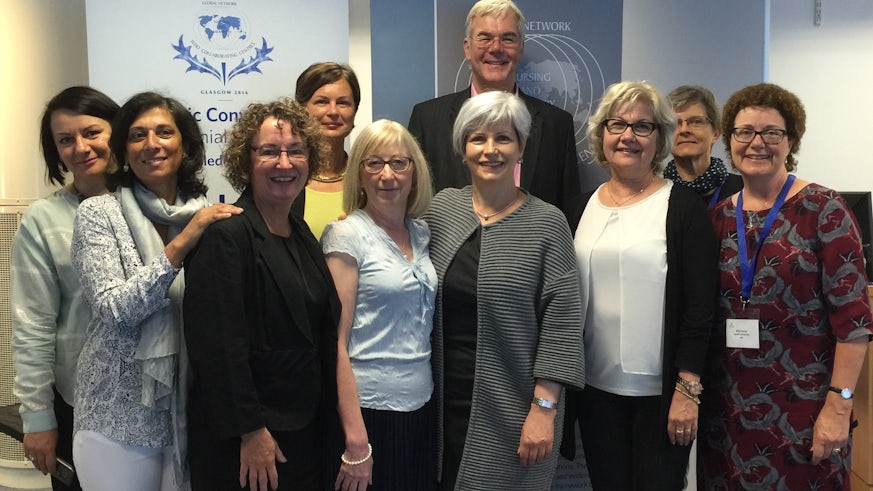At the forefront of midwifery advancement
24 August 2016

The World Health Organisation (WHO) has officially designated Cardiff University’s School of Healthcare Sciences a collaborating centre for midwifery development, placing the university at the forefront of advancement in this vital area of healthcare.
The centre will be the only midwifery collaborating centre in the WHO European region and one of only two collaborating centres in the world which solely focuses on midwifery.
Professor Billie Hunter from Cardiff University’s School of Healthcare Sciences has been appointed Director of the new collaborating centre.
Professor Hunter said: “I'm delighted to be appointed Director of the new WHO Collaborating Centre for Midwifery Development, it's a great honour and privilege, both personally and for Cardiff University.
“I'm very excited about future opportunities to work with the midwifery team at Cardiff University and our international colleagues to contribute to the important work of WHO.”
Galina Perfilieva, Programme Manager for Human Resources for Health at WHO/Europe added: “We are delighted to welcome the School of Healthcare Sciences at Cardiff to the European and global networks of WHO collaborating centres for nursing and midwifery.
“Over the years, Cardiff University has made significant contributions to the field of midwifery, and the designation as a collaborating centre is recognition of its efforts.
“As a WHO collaborating centre, the School of Healthcare Sciences will generate evidence and good practices in the field of midwifery education and practice, and provide technical advice to WHO Member States.”
Midwifery has been identified by WHO in numerous policies as the key to improving maternal and infant health globally. It's estimated that 18m more midwives and nurses will be needed globally, especially in low-income countries, to ensure effective provision for the world's population by 2030.
The new collaborating centre has expertise in a wide range of midwifery education and a work plan has been developed which will help support WHO wider policies. The key areas of focus include:
- helping WHO to map midwifery education across Europe, in order to monitor progress
- developing an evidence-based resource for countries wanting to develop a midwifery programme
- providing expert advice to countries about midwifery education and curriculum development (for example, in November 2015 the School of Healthcare Sciences visited Uzbekistan at the request of the Uzbek government)
Speaking of the importance of the collaboration, Professor Hunter said: “Every year over 300,000 women die because of pregnancy related conditions, and 90% of these deaths are preventable. We know that quality midwifery can avert more than 4 in 5 maternal deaths, but in many countries, midwives are not well trained or supported in practice.
“In the Collaborating Centre, we will support WHO to strengthen midwifery education and practice across the 53 member states of the WHO European region, in order to improve the quality of care for mothers and babies.”
WHO works alongside various governments and other partners to safeguard the highest attainable level of health for all people. It has been active for nearly 70 years following its formation in 1948 and today has offices in over 150 countries. The University joins over 700 collaborating centres in 80 countries supporting WHO programmes.
